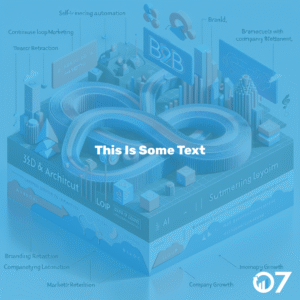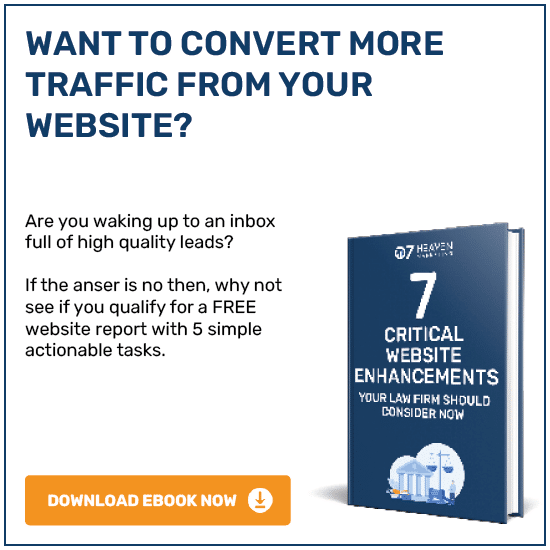A marketing qualified lead is a marketing technique that can help your sales and lead conversion process. However, lets firstly look at the basics, what is a lead? A lead in marketing, put simply, is a person who shows some form of interest in a company’s services or products. This makes them a potential customer moving forwards.
In this blog we explore what it is that makes a lead an MQL, how to define an MQL within your business and exactly what benefits an MQL will have to your business.
So, what is it that makes a lead a marketing qualified lead?
A marketing qualified lead is when a visitor expresses interest in something your brand has to offer making them more likely to become a converted customer down the line. These are leads that are aware of your brand and considering content and offers you have published; however, they are not quite at the stage to be converted into a sale.
Understanding if a customer is at this stage, is achieved by collecting and analysing data. By creating targeted content and products you can collect information that allows you to understand where a customer is in their buyer’s journey. This can be obtained by filling out a form, downloading content, adding e-commerce items to the checkout, or signing up for a newsletter.
An MQL is likely to be the middle of the buyer’s journey across the awareness and consideration stages.
It is important to understand that not all leads are marketing qualified leads. Some visitors to your website will never fit your buyer persona. Some examples of this include students looking to research a subject or a competitor looking to steal your ideas.
A marketing qualified lead will also, at some point, become a sales qualified lead. A sales qualified lead is a lead where the person is at an extremely high chance of purchasing your products or services. They are likely to act on an urge within 24 hours of making initial contact.

How to define a marketing qualified lead in your business
Defining an MQL is an important step if you are to successfully use MQL’s throughout your business. Parameters must be set up to define what is a lead, an MQL and an SQL. So, how do you set these parameters?
A good place to start is at your buyer persona. It offers an insight into what a potential customer is looking for when visiting your site. It also allows you to determine what stage of the buyers journey a customer is likely to be at when viewing content and products.
Next, it is vital to liaise with sales. This step allows you to understand things from their perspective. This helps you gain an understanding on what and MQL and what and SQL is. You can set clear, defining boundaries. It is also great as it aligns both parts of the business to a common goal, helping streamline your marketing and sales process.
Some good questions at this stage are:
- What information do you need to know to sell to a lead?
- What are the main push backs when you are trying to sell to a lead?
- What do you consider a full sales qualified lead?
Once you have understood what an MQL will look like across the business, demographic and behavioural factors will help determine what information needs to be collected to deliver your MQL and then SQL.
Demographic factors include: Age, Sex, budget, company type, industry focus, and occupation.
Behavioural factors allow an insight into the behavioural patterns of previous customers and their journey to becoming a customer. Using website tracking it is possible to determine similar content and products that customer viewed, hopefully meaning you can target a similar conversion path for customers in the future.
Once you have decided on the most important factors to your business and campaign, it is time to create a lead score system.
A lead score is a system that allows a company to rank the quality of lead they have obtained. The ranking system links into the essential factors needed to be collected for a lead to become and MQL and then an SQL.
By monitoring a lead score, you can determine when a lead fits the pre-set parameters and become an MQL. Lead scores are often managed by CRM systems; however, a company can do it manually.
Benefits of a Marketing Qualified lead?
MQL’s have several benefits when used correctly throughout a business. Look below at some benefits available:
- Create a streamlined sales process, saving time and resources on selling.
- Create a singular objective between marketing, sales, and the wider business.
- Create targeted conversion paths through previous analytics.
- Improve your content marketing strategy by highlight areas to target.
- Create clear and concise priorities throughout your marketing campaign.
We have created a digital marketing resource page, why not check it out? It is about all things digital marketing and inbound marketing. We have listed informational blogs about inbound marketing methodology, SEO, content creation and social media management.
For further insights and guidance, we invite you to explore our blog at 07hm.co.uk/blog. Here, you’ll find a wealth of information tailored to the needs and challenges of SMEs navigating the digital landscape. Additionally, if you have specific questions or need personalised advice, don’t hesitate to reach out to us via email at info@07hm.co.uk or telephone on 01702 410663.






